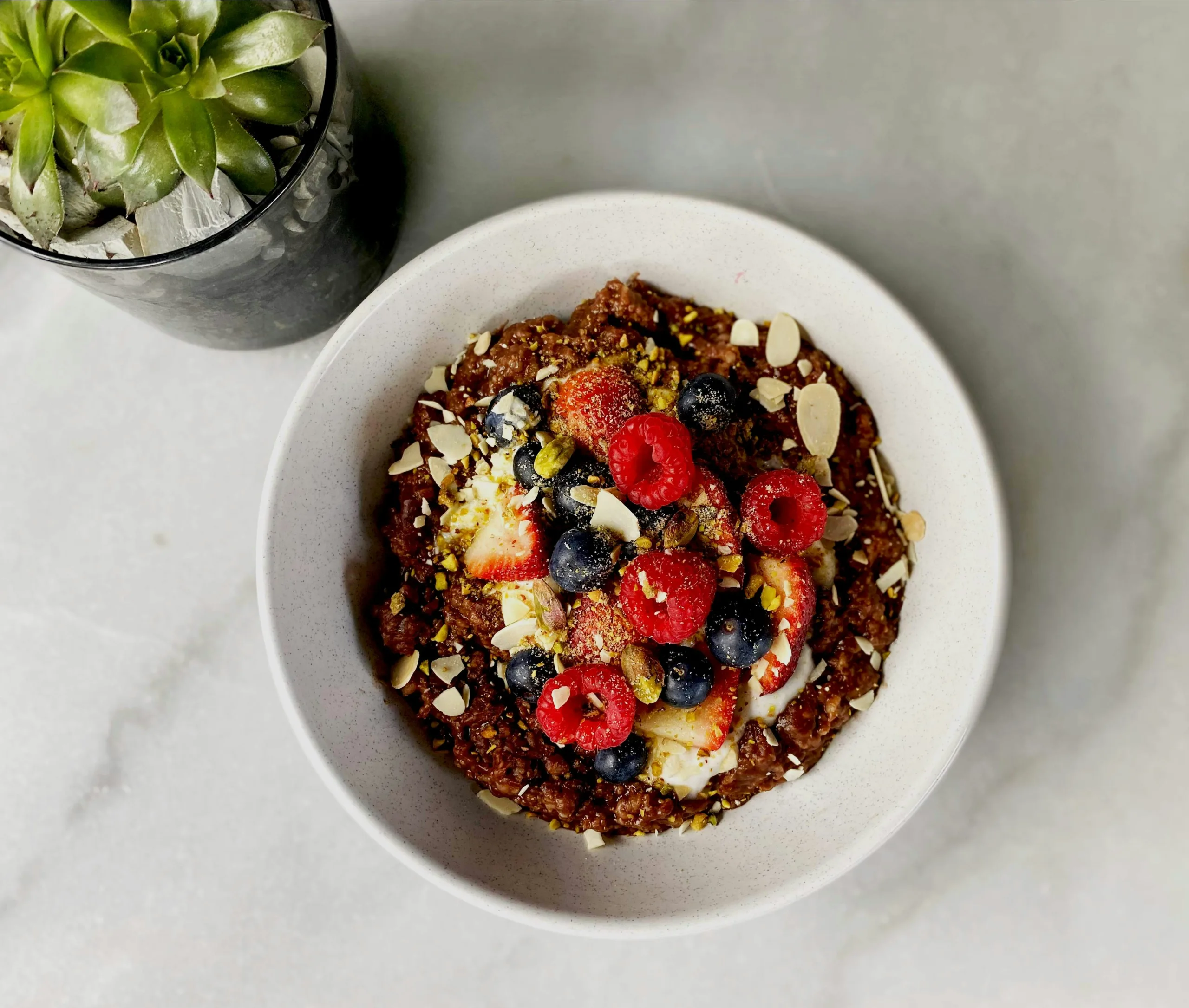Ever hear of healthy bad habits? No? You’re right—the phrase seems like an oxymoron.
But there are some behaviors that just might qualify for the categorization, depending on the situation. We’re talking about habits that have an unhealthy reputation but are actually more nuanced when it comes to their impact. The concept makes sense because there are many factors that influence whether a habit is healthy or not. What’s your motivation? How often are you engaging in the behavior? What’s the context?
These three habits, below, all quality and are pretty common. Keep reading to find out how you might actually be doing the right thing for your body (and mind) in these scenarios by choosing what intuitively feels like the unhealthy option.
3 Common “Healthy Bad Habits”
1. Skipping a morning workout to sleep in

Regular exercise is one of the most beneficial healthy habits you can adopt. Prioritizing it over getting enough sleep, however, negates the incredible benefits. Sleep is crucial for immunity, brain health, energy, and so much more. In fact, you even need it to work out effectively. If your alarm goes off and you can’t drag yourself out of bed, your body might just need sleep more than it needs a spin class in that moment. Get your Zzzs and then do some work on your schedule to balance the time you spend in bed and doing burpees.
RELATED: How Many Hours of Sleep Do You Really Need?
2. Stressing about a project at work

Chronic stress is bad. (Hello, inflammation!) But some stress—the acute, short-term kind—can be a good thing in small doses. Especially if it’s related to one big, important project, since there’s real evidence that people often perform better when responding to a challenge. The key is that you’ve got to see the stressor as a challenge you can meet, not a roadblock you’ll never be able to get past. Once the project is completed, pat yourself on the back. If you’re stressed about every project every day all day…that’s another (unhealthy) story.
RELATED: The Effective Stress-Release Techniques Experts Rely On
3. Ordering dessert

We don’t believe in cheat meals; we believe in conscious indulgences. Here’s why ordering that dreamy dark chocolate cake after a salmon-and-veggies entree can qualify—and be good for you. Every meal is an individual opportunity to eat well, and the cheat meal concept diminishes how empowering making excellent, delicious choices can be.
A conscious indulgence is different because you indulge from a place of positive energy. You’re excited about the cake and you share one rich slice with your date and fawn over the flavor together. You don’t feel like you’ve failed or given in. You just enjoy it (which is good for your mental health!), confident in your own ability to start the next day with a healthy, protein-filled breakfast followed by your favorite lunch salad. Plus, if you indulge in truly delicious treats, you’ll start to want the less special ones (like comparatively tasteless M&Ms) less and less.





























